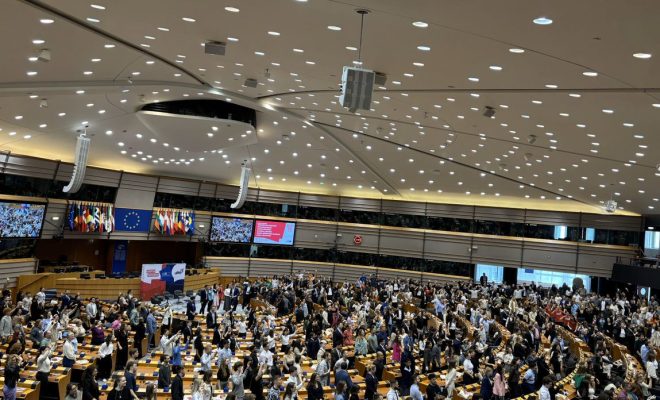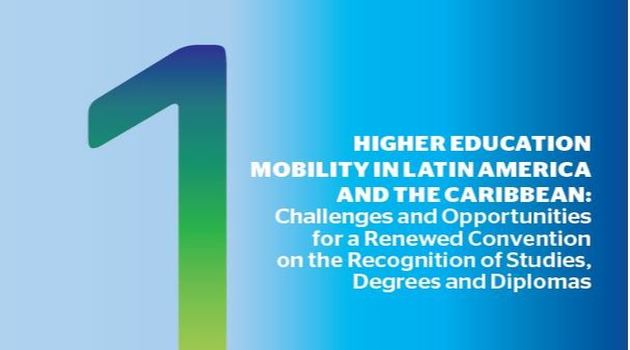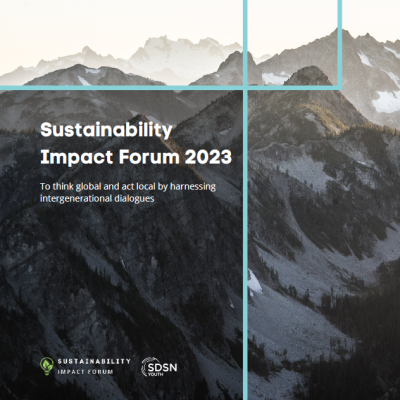Enabling youth: Addressing challenges and shaping futures in the EuroMed region

From April 12th to 19th, Brussels buzzed with energy as it played host to a series of events, with a particular focus on youth. Among these events was the kick-off of European Youth Week, a gathering that brought together young individuals from across Europe, as well as a remarkable presence from the South and East Mediterranean region at the European Parliament in Brussels. There, the attendees and participants discussed critical topics such as health and well-being, environment and climate, education and training, peace and international cooperation, and employment and social inclusion. The debates, held both within the parliament and beyond its walls, shed light on pressing issues and potential solutions to these matters.
In the dynamic landscape of European education and youth enabling, recent developments have sparked both excitement and contemplation. Two weeks ago, the European Commission unveiled a blueprint for a New European Degree, marking a significant milestone in the journey towards a more unified and competitive Europe. This initiative, born out of collaboration among six Erasmus+ pilot projects spanning over 140 higher education institutions across the EU, introduces a transformative concept: a unified degree awarded upon completion of transnational academic programs in the region. This initiative holds promise as a symbol of academic excellence and European identity, aiming to equip graduates with skills tailored for the green and digital transitions sweeping the continent.
Youth engagement in policy making
Moreover, the discussions highlighted the importance of youth engagement and representation in shaping policies and initiatives. Conversations put emphasis on the pressing need to amplify the voices of young people in decision-making processes, with education emerging as a central pillar of concern and opportunity in the EuroMed region -a union of the EU Member States and 16 Southern and Eastern Mediterranean countries built on cooperation agreements that aims to promote economic integration and democratic reform across the EU’s neighbours to the south in North Africa and the Middle East-.
As debates delved deeper into the challenges and aspirations of youth, it became evident that the road to empowerment is fraught with obstacles. In the South and East Mediterranean region, they range from bureaucratic constraints to access barriers, forming a complex landscape that demands specific attention. Issues such as visa mobility restrictions, limited infrastructure in rural areas, and systemic inequalities underscore the urgency of holistic solutions.
The quest for youth empowerment extends beyond education to encompass political participation, social justice, and environmental stewardship. However, traditional modes of engagement, such as formal unions and political parties, often fail to resonate with today’s youth, who seek more inclusive and bottom-up approaches to effect change. Mistrust in political institutions, coupled with a sense of disconnect between generations, poses formidable challenges to meaningful dialogue and collaboration.
Yet, amidst these challenges lie opportunities for transformation and renewal. By harnessing the power of digital technology, fostering intergenerational dialogue, and reimagining traditional frameworks, we can pave the way for a more inclusive and responsive society. Empowering young leaders with the skills and tools they need to navigate complex issues, from conflict resolution to policy advocacy, is essential for building a sustainable future.
At the heart of youth empowerment also lies the recognition of diversity and intersectionality. Young people are not a monolithic group; they bring a wealth of experiences, perspectives, and aspirations to the table. It is imperative to dismantle barriers to participation, address biases in selection processes, and foster a culture of inclusivity and belonging.
Moreover, sustainability in youth-enabling efforts requires a long-term commitment to nurturing talent, fostering resilience, and forging a sense of belonging and purpose. It is not enough to initiate one-off programs or tokenistic gestures; we must invest in continuous learning, capacity building, and community engagement. The EU is setting a positive example through the European Commission Recovery and Resilience Facility by prioritizing investments in education, including updating curricula to align with the needs of the labor market. Additionally, the facility ensures students have access to suitable housing and other essentials to support their academic success.
As we navigate the complexities of youth enabling in the EuroMed region and beyond, it is essential to heed the voices of young people themselves. Their insights, aspirations, and concerns must guide our efforts to build a more equitable, inclusive, and prosperous future for all. Together, we can create a world where every young person can thrive, contribute, and shape their destiny.
Author: Eliane El Haber, Associate Project Officer at UNESCO IESALC.
RELATED ITEMS







